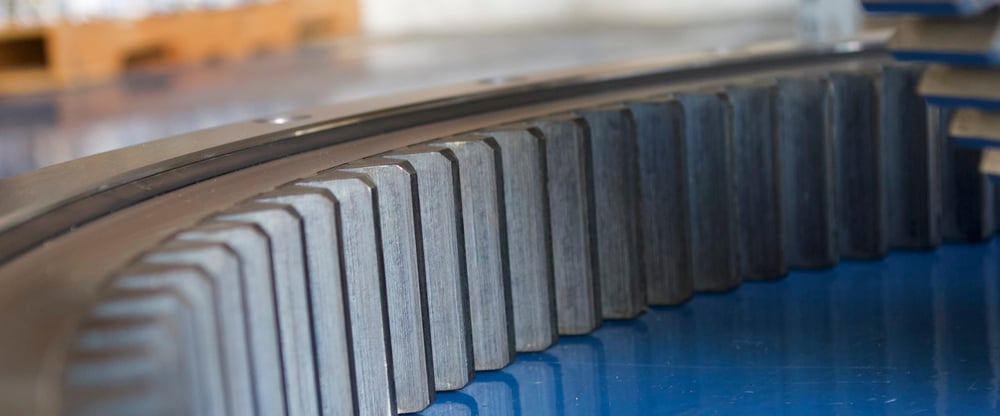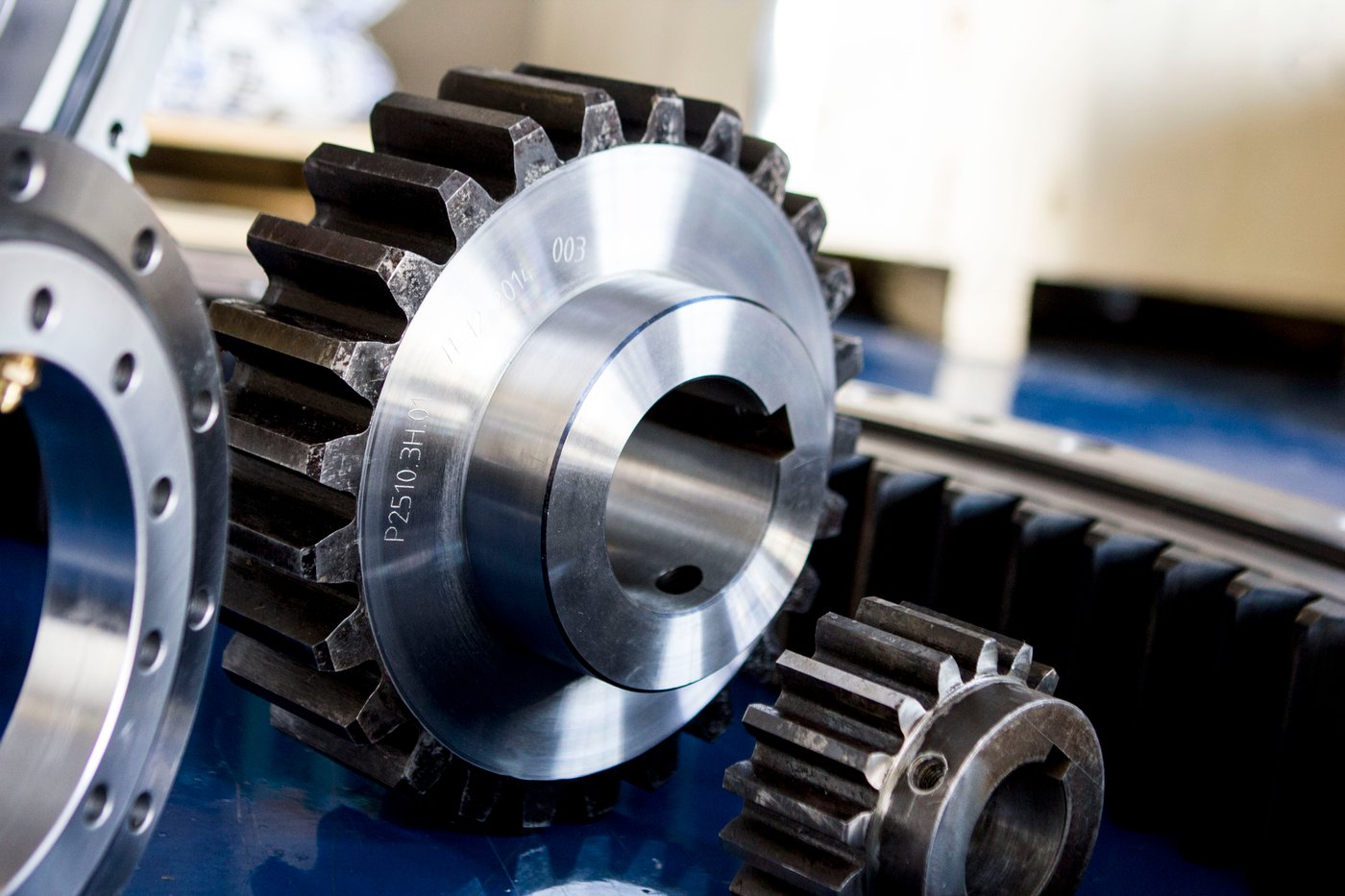Every day, millions of gallons of wastewater flow through municipal treatment facilities across the country, undergoing a complex process of cleaning and purification before being safely returned to the environment. At the heart of these critical operations are rotating mechanical systems that never stop working—clarifier arms, thickener mechanisms, and screening equipment that rely on robust slewing drives to maintain continuous, reliable operation in some of the most challenging environments industrial machinery can face.
Water treatment facilities present unique operational demands that test equipment durability, reliability, and corrosion resistance to their limits. The combination of constant moisture exposure, chemical treatment agents, and round-the-clock operation requires drive systems engineered specifically for these demanding conditions. This is where advanced slewing drive technology becomes essential to maintaining the infrastructure that protects public health and environmental quality.
The Critical Role of Slewing Drives in Water Treatment
Primary and Secondary Clarifiers
The backbone of most municipal water treatment operations involves clarification processes that separate solids from liquids through controlled sedimentation. Primary clarifiers remove approximately 50-60% of total suspended solids through basic settling processes, while secondary clarifiers in activated sludge systems achieve much higher removal rates through biological treatment processes.
These massive circular basins—often exceeding 100 feet in diameter—rely on slowly rotating rake arms to continuously collect settled sludge and direct it toward central collection points. The rotating mechanism must operate at extremely low speeds, typically 1-3 revolutions per hour, while generating sufficient torque to move heavy sludge loads through the water.
SlewPro's precision-engineered slewing drives provide the perfect solution for these applications. Our drives combine high-torque output with ultra-low speed operation, delivering the consistent performance required for continuous clarifier operation. The low-speed, high-torque characteristics with positive output torque overload protection make slewing drives ideally suited for clarifier rake systems.
Thickener Operations
Sludge thickening represents another critical application where slewing drives prove indispensable. Thickener systems concentrate settled biosolids, reducing volume and preparing materials for final disposal or further processing. These operations require even higher torque outputs than standard clarifiers, as thickened sludge creates substantially more resistance to mechanical movement.
The rotating thickener arms must maintain consistent speed and torque despite varying sludge consistency and depth. SlewPro's heavy-duty slewing drives are engineered to handle these demanding conditions, providing reliable torque transmission even when encountering unexpected resistance or system overloads.
Screening and Filtration Systems
Modern water treatment facilities increasingly rely on advanced screening and filtration systems that incorporate rotating elements. These systems require precise speed control and consistent operation to maintain optimal treatment efficiency. Rotating drum screens, disc filters, and traveling bridge systems all depend on reliable drive mechanisms to maintain proper flow rates and treatment effectiveness.
Corrosion Resistance: The Make-or-Break Factor
Water treatment environments represent some of the most corrosive conditions industrial equipment encounters. The combination of constant moisture exposure, chemical treatment agents, and varying pH levels creates an environment where standard carbon steel components quickly deteriorate, leading to equipment failure and costly emergency repairs.
Understanding Corrosion Challenges
Municipal water treatment facilities expose equipment to multiple corrosion mechanisms simultaneously. Uniform corrosion occurs when metal surfaces react with water and dissolved chemicals, gradually thinning material. Pitting corrosion creates localized weak points that can lead to catastrophic failure. Crevice corrosion develops in tight spaces where water becomes trapped, creating concentrated chemical conditions that accelerate material degradation.
The presence of chlorides, sulfates, and other dissolved chemicals in treatment processes significantly increases corrosion potential. Additionally, the biological activity inherent in wastewater treatment creates microbiologically influenced corrosion (MIC), where bacteria and other microorganisms accelerate metal degradation through their metabolic processes.
Material Solutions for Harsh Environments
SlewPro addresses these challenges through advanced protective treatments specifically engineered for highly corrosive water treatment environments. For applications exposed to aggressive conditions, we recommend Armoloy plating—a proprietary thin dense chrome coating that provides exceptional corrosion resistance without compromising the dimensional accuracy or mechanical properties of the underlying bearing components.
Armoloy Plating delivers superior protection in chloride-rich environments typical of water treatment facilities. This thin, dense chromium coating penetrates the surface of the base material rather than simply layering on top, creating a metallurgical bond that resists chipping, flaking, and wear. The coating maintains dimensional tolerances critical for precision bearing operation while providing corrosion resistance that significantly extends service life in harsh chemical environments.
Advanced Protective Coatings
SlewPro employs advanced coating technologies to enhance corrosion protection for water treatment applications. Our recommended Armoloy plating provides exceptional corrosion resistance while maintaining the mechanical properties and precise tolerances of the base material.
Zinc-Rich Primers provide galvanic protection where the coating acts as a sacrificial layer, protecting the underlying steel even if the coating is damaged.
Epoxy Barrier Coatings create an impermeable barrier between the metal surface and corrosive environment, offering long-term protection when properly applied and maintained.
Ceramic-Enhanced Coatings provide exceptional chemical resistance and mechanical durability, making them ideal for severe service applications.
Sealing Technology for Water Treatment
The aggressive environment of water treatment facilities demands advanced sealing solutions that prevent contamination while maintaining lubrication integrity. Sealed housings with oil bath lubrication, inspection covers, desiccant breathers, and drain valves provide comprehensive protection against contamination.
SlewPro's fully-sealed drive designs incorporate multiple sealing stages to prevent water and chemical ingress. Primary seals handle the bulk of contamination exclusion, while secondary seals provide backup protection. Breathing systems maintain internal pressure balance while filtering incoming air to prevent contaminate accumulation.
Design Considerations for Water Treatment Applications
Load Management and Safety Factors
Water treatment clarifiers and thickeners create unique loading conditions that vary significantly during operation. Normal operation involves relatively consistent torque requirements, but startup conditions, ice formation, or sludge buildup can create temporary overload situations that standard drives cannot handle.
SlewPro's engineering team incorporates substantial safety factors into water treatment drive specifications, ensuring reliable operation even under exceptional conditions. Our custom-tailored approach allows us to match drive characteristics precisely to application requirements, optimizing performance while maintaining reliability.
Environmental Considerations
Municipal water treatment facilities operate continuously, regardless of weather conditions. Drive systems must function reliably through temperature extremes, humidity variations, and direct precipitation exposure. IP66-rated sealed designs protect against dust, water spray, and debris, making them ideal for environments exposed to frequent storms, humidity, or temperature extremes.
Temperature Compensation ensures consistent performance across seasonal temperature variations. Lubrication systems must maintain proper viscosity in winter conditions while preventing thermal breakdown during summer operation.
Condensation Management addresses the inevitable moisture accumulation that occurs in equipment exposed to high humidity and temperature cycling. Proper breathing systems and drainage provisions prevent water accumulation that could compromise lubrication or cause internal corrosion.
Maintenance Accessibility
Water treatment facilities often operate with limited maintenance windows, making accessibility and serviceability critical design considerations. Drive systems must be designed for routine maintenance without requiring basin drainage or extended system shutdown.
Advanced bearing drive designs can be fully rebuilt or repaired from the platform without ever draining the basin, minimizing maintenance downtime and reducing service costs. SlewPro's modular design approach facilitates component replacement and routine maintenance, keeping systems operating at peak efficiency.
Integration with Treatment Process Control
Modern water treatment facilities increasingly rely on automated process control systems to optimize treatment efficiency and minimize operating costs. Slewing drives must integrate seamlessly with these control systems, providing reliable speed regulation and torque feedback for process optimization.
Variable Speed Control
Advanced treatment processes benefit from variable speed operation that allows operators to adjust settling times and mixing intensity based on incoming waste characteristics. SlewPro's drives can be configured with variable frequency drives (VFDs) to provide precise speed control while maintaining high torque output at low speeds.
Monitoring and Diagnostics
Predictive maintenance programs in municipal facilities depend on continuous monitoring of critical equipment parameters. Modern slewing drives can incorporate sensors for temperature, vibration, and lubricant condition monitoring, providing early warning of potential issues before they result in equipment failure.
Power consumption monitoring provides insight into drive loading conditions, helping operators identify process issues such as unusual sludge consistency or mechanical obstructions before they cause equipment damage.
Economic Benefits of Proper Drive Selection
Lifecycle Cost Analysis
While initial equipment costs are important, municipal facilities must consider total lifecycle costs when selecting critical equipment. Properly specified slewing drives with adequate corrosion protection and robust design characteristics provide superior long-term value through reduced maintenance requirements and extended service life.
Reduced Maintenance Costs result from reliable operation and extended service intervals. High-quality drives require less frequent inspection and component replacement, reducing both material costs and labor requirements.
Improved Uptime translates directly to better treatment capacity and reduced risk of regulatory violations. Municipal facilities that experience equipment failures may face fines and emergency repair costs far exceeding the initial cost differential of premium equipment.
Energy Efficiency improvements through proper drive selection can provide ongoing operational savings. Well-designed slewing drives minimize parasitic losses while providing consistent torque output, reducing overall power consumption.
Risk Mitigation
Municipal water treatment represents critical infrastructure where equipment failure can have serious consequences. Proper drive selection mitigates risks through improved reliability and predictable maintenance requirements.
Regulatory Compliance becomes easier to maintain when equipment operates consistently and predictably. Treatment facilities with reliable mechanical systems can better meet discharge requirements and avoid potential violations.
Emergency Response Capability improves when facilities maintain adequate equipment reliability margins. Systems designed with appropriate safety factors continue operating even when stressed by unusual conditions.
Future Trends in Water Treatment Drive Technology
Smart Drive Systems
The integration of IoT sensors and advanced diagnostics represents the future of water treatment equipment monitoring. Smart slewing drives provide real-time performance data, enabling predictive maintenance and process optimization that was previously impossible.
Condition-Based Maintenance programs use actual equipment condition rather than time-based schedules to determine maintenance requirements, optimizing both equipment life and maintenance costs.
Process Integration allows drive systems to communicate directly with plant control systems, providing feedback for automatic process adjustments that improve treatment efficiency.
Advanced Materials and Coatings
Ongoing materials research continues to develop new protective coatings that offer improved corrosion resistance and extended service life. Armoloy and other advanced thin dense chrome coatings represent proven technologies that provide exceptional durability in aggressive water treatment environments, offering enhanced rust and corrosion resistance while maintaining the precision and mechanical integrity critical for bearing performance.
Nano-enhanced coatings and self-healing materials represent emerging technologies that may further improve equipment durability in aggressive water treatment environments.
Selecting the Right Partner
Municipal water treatment facilities require partners who understand both the technical requirements and operational constraints of critical infrastructure applications. SlewPro's experience in demanding industrial applications translates directly to water treatment challenges, providing the expertise needed to specify optimal drive solutions.
Our comprehensive quality manufacturing processes ensure consistent performance and reliability, while our engineering support helps facilities optimize their equipment specifications for local conditions and operational requirements.
Conclusion
Slewing drives represent critical components in municipal water treatment infrastructure, providing the reliable mechanical motion required for continuous treatment operations. The success of these systems depends heavily on proper material selection, corrosion protection, and design optimization for the unique challenges of water treatment environments.
By partnering with experienced manufacturers who understand both the technical requirements and operational realities of municipal water treatment, facilities can ensure reliable, cost-effective operation of their critical infrastructure systems. SlewPro's commitment to precision manufacturing and comprehensive engineering support makes us the ideal partner for your water treatment drive requirements.
The combination of advanced materials, protective coatings, and robust mechanical design creates drive systems capable of decades of reliable service in the demanding environment of municipal water treatment. As treatment requirements become more stringent and facilities seek to optimize operational efficiency, the importance of reliable, well-engineered slewing drives continues to grow.
Ready to enhance your water treatment facility's reliability with proven slewing drive technology? Contact SlewPro today to discuss your specific application requirements and discover how our engineering expertise can support your municipal infrastructure needs.




